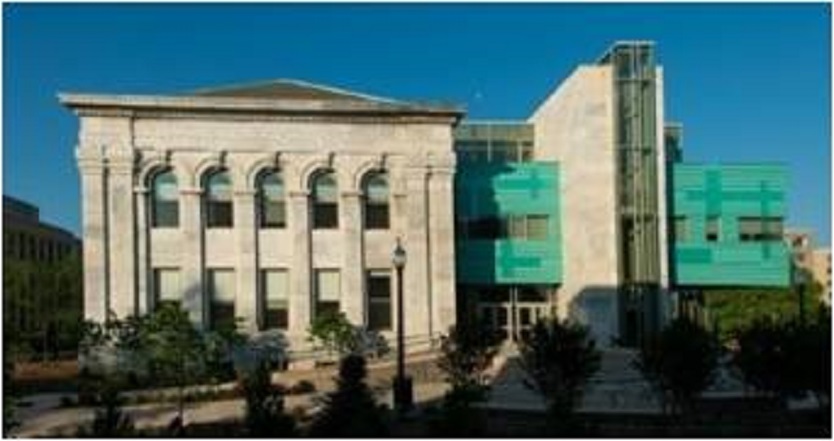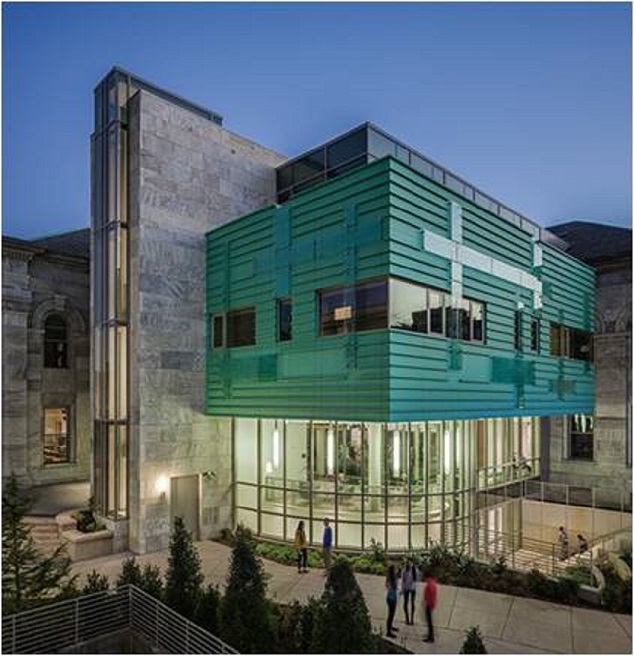
MeteoViva - American University, McKinley Building
© AHK USA - New York
MeteoViva Climate connects to the AU BMS and incorporates all climate relevant equipment in the building. It assesses the thermodynamics of the building, knows its usage patterns and internal loads, understands the effects of external temperature, sun and wind on the indoor climate and knows what the weather will be for the next three days. With this information MeteoViva Climate calculates the optimal control data for the HVAC equipment. MeteoViva installed the MeteoViva Climate connector and did the thermodynamical modeling of the McKinley Building.
Energy Efficiency Achieved
Within the evaluation period of the last 12 months, MVC reduced energy costs for heating, ventilation and air conditioning (HVAC) from $ 133,271 to $ 85,025, representing savings of $ 48,245, or 36%.
Furthermore, MeteoViva Climate helped detect significant malfunctions in the HVAC operation. These were addressed by AU’s Building Automation and Energy Management Staff. In addition, the linked reduction in carbon dioxide emissions helps AU in achieving its Climate Plan goal of carbon neutrality by 2020.
Learn more about the project in the brochure for the technology showcase.

MeteoViva - American University, McKinley Building
© AHK USA - New York
About the technology showcase "Energy Efficiency Award Challenge - German Innovation in U.S. Buildings"
The Award Challenge was created as part of the German Energy Solutions Initiative, sponsored by the German Ministry for Economic Affairs and Energy, to recognize the positive impact German businesses have in the U.S. building sector. It is designed to help German companies strengthen their position in the U.S market and make new connections within the U.S. sustainable building industry. The competition provided participating German companies with the chance to showcase their technologies and services that focus on increasing overall building performance across the U.S. The five finalists of this years’ challenge were: 1100 Architect, Arnold Glas, Kaeser Compressors, Meteoviva and Transsolar. These five presented themselves and their projects in front of the jury and audience. After careful consideration, two winners were selected: MeteoViva and Transsolar.
Current market trends suggest that building owners and managers will invest $960 billion between now and 2023 on “greening” their existing building infrastructures. In terms of growth throughout the sustainable building industry, the U.S. is still lagging behind Germany and other European countries that prioritize reducing CO2-emissions. The aforementioned trends towards a more sustainable and energy efficiency-focused method of building, coupled with the exemplary efforts to prioritize developments in this industry throughout Europe, have created increasing market opportunities in the U.S. for German companies in this field. The Award Challenge aimed at providing both applicants and attendees with the chance to learn more about energy efficient solutions from German manufacturers, as well as how they are being implemented in the U.S. building sector.


